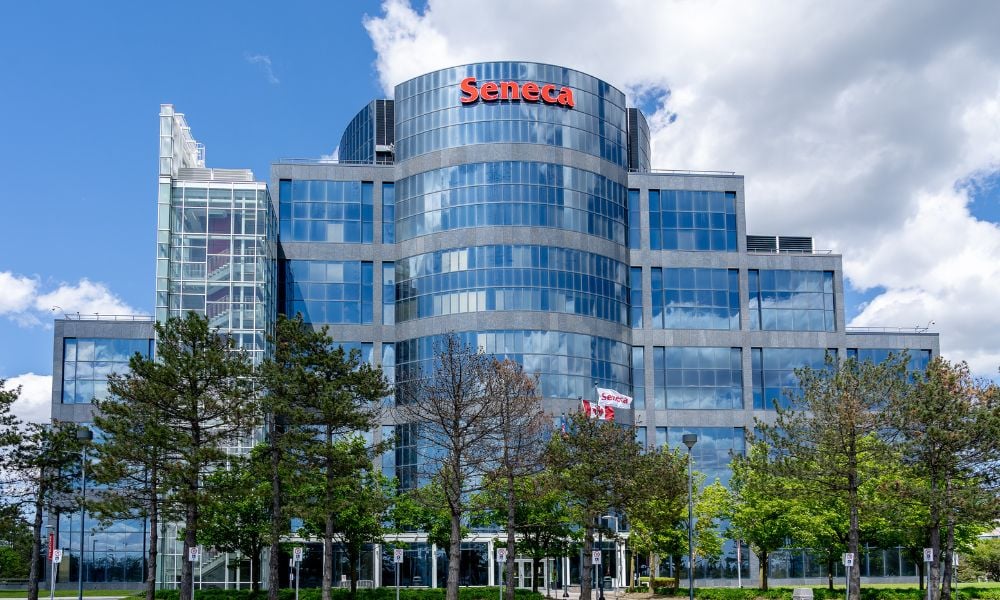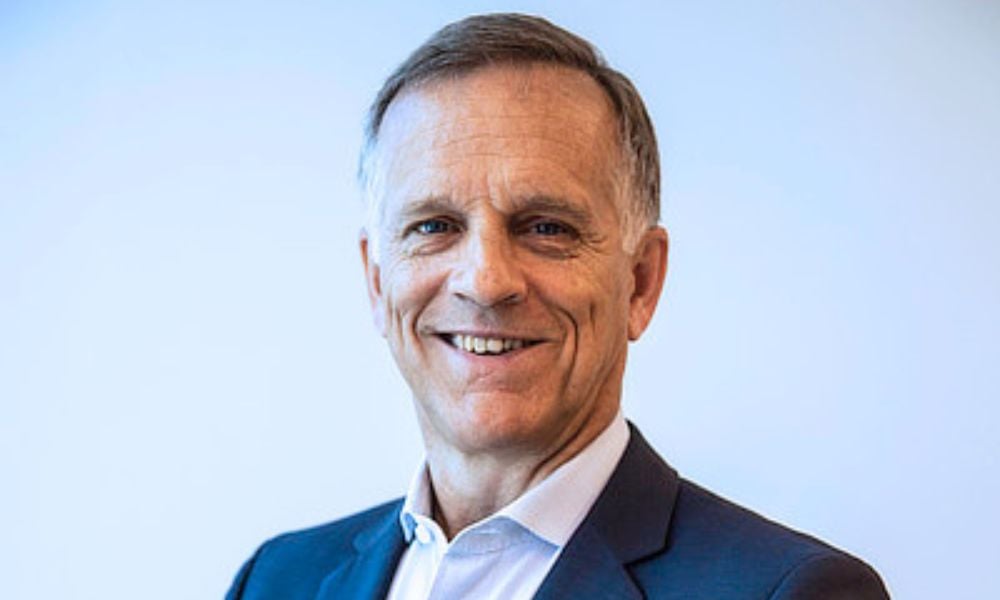Industry ripe for consolidation, could lead to higher prices for customers
Oracle’s attempted hostile takeover of rival software vendor PeopleSoft is indicative of an industry ready for consolidation, which could potentially mean higher prices for customers, say HR technology experts.
“I think it is a pretty straightforward, maturing industry, consolidation type play,” said Ed McMahon, national practice director of technology solutions for Watson Wyatt Canada. “(Oracle CEO Larry Ellison) probably thinks there will be two or three major industry players and he wants to be one of them.”
Besides a new expanded Oracle, SAP will remain a major player in the business, he said. Beyond those two, expect Microsoft to stake out a sizeable claim in the enterprise system market.
Consolidation is not good news for customers, he said. “Any time your choices are limited, prices go up. It is just the law of pricing,” he said. “If in the past you could choose between five options and now you can only choose between two, your price is going to go up guaranteed.”
“I think consolidation in general makes a lot of sense,” said Ian Turnbull, HR technology consultant and president of Laird and Greer. “I am a little surprised that there hasn’t been more consolidation.”
The industry experience high-paced growth in the ’90s. That growth wasn’t sustainable and so some software companies will be looking for merger and acquisition opportunities so they can continue to grow, he said.
An Oracle-PeopleSoft merger, if it happens, won’t affect the HR or payroll system market very much, he said. When people talk about consolidation and the emergence of two or three key players, they are talking about the large market enterprise resource planning (ERP) system providers.
The Canadian market has already seen some consolidation, Kronos buying one of Best Software’s products and Great Plains (a Microsoft company) taking over HRWare, for example. It’s likely more will happen in the future, said Turnbull. That would mean there are fewer HR technology vendor offerings for the typical mid-sized Canadian firm to choose from. However, it’s unlikely Canadian customers will see a spike in software prices right now as most vendors are still busy competing for sales in a soft market, he said.
Oracle launched its takeover bid just days after PeopleSoft and J.D. Edwards announced plans to merge. Some industry observers suggested Oracle’s move was motivated more by a desire to complicate the PeopleSoft-J.D. Edwards deal than by any serious intentions of taking over PeopleSoft. PeopleSoft and J.D. Edwards vowed to fight the Oracle takeover and proceed with their merger, leaving both deals in limbo.
PeopleSoft rejected an improved second offer from Oracle but, at press time, Oracle CEO Larry Ellison was hinting another offer was possible.
“I suspect it will happen. I don’t think Ellison is the kind of guy to give up part way,” said McMahon.
But Turnbull is not convinced Oracle will succeed.
“I think PeopleSoft will do everything it can do to resist it. I think they see themselves having a future and they don’t want to be controlled,” he said. “At some point the shareholders could rebel, but I think it’s unlikely.”
Al Doran, an HR technology consultant and president of Phenix Management International, said the announcement of Oracle’s takeover attempt had a lot of PeopleSoft customers asking questions about what it would mean to them if the takeover is successful.
They have long-term strategic plans based on implementing a PeopleSoft system over the next few years, now they’ll likely have to rethink it, he said. They will probably have new modules being pushed on them and they’re worried about the support they will receive for their current PeopleSoft system.
Those considering putting in new system are probably going to stay away from PeopleSoft until there is more certainty. “The unknowns are just going to scare the pants off people.”
Oracle said it would continue to support PeopleSoft customers, stating, “They will also be offered, at no extra licence charge, a product migration to the equivalent Oracle product.”
Oracle said it will also extend the support period for PeopleSoft version 7 beyond the December 2003 deadline originally set by PeopleSoft, “thus removing the current pressure on PeopleSoft customers to migrate.”
McMahon, of Watson Wyatt, said PeopleSoft customers probably have nothing to worry about. “PeopleSoft is a great brand. I can’t see that (Oracle) is going to buy PeopleSoft and kill it.”
The only concern may be whether or not the two companies can merge together smoothly so that service isn’t disrupted — which is no sure thing given the reportedly very different cultures of the two organizations.
Even if Oracle is successful the effects on the PeopleSoft side of the business wouldn’t likely be felt for a couple of years, said Turnbull. If anything, organizations that are running Oracle applications should be worried, he said. It’s widely accepted that PeopleSoft’s products are much better than anything produced by Oracle so far. Oracle knows the PeopleSoft product is good and that is why they want to buy it, he said. “If you were Oracle and you were going to drop one of the two lines, which one would you drop? I would drop Oracle.”
Jacqueline Kuhn, manager of HR systems for Illinois-based Sears, Roebuck and Co., a PeopleSoft customer, said they are not at all concerned about Oracle’s attempted takeover.
“I truly don’t feel that the buy-out will happen,” she told the Canadian HR Reporter. Even if the PeopleSoft board accepts Oracle’s overtures, it’s likely the U.S. government would step in to stop the formation of such a large conglomerate, she said.
J.D. Edwards CEO Bob Dutkowsky told a conference of J.D. Edwards users in mid-June that Oracle’s proposed takeover “raises such serious anti-trust problems that it will face months of investigation by the U.S. Department of Justice and the Securities and Exchange Commission.
“There is a high likelihood that one or both agencies will end up blocking the action,” he said.
Even if Oracle is successful and the government does not intervene, Kuhn is not worried service will be negatively affected. “I can’t see Oracle buying PeopleSoft and not supporting the millions of customers they have.” In the meantime, Sears, which has been running PeopleSoft since 1997, will move ahead with its plan to upgrade to PeopleSoft 8.8, she said. Senior executives from PeopleSoft have been in touch with executives from Sears and at this time they see no need to make any changes to what they are doing, she added.
“I think it is a pretty straightforward, maturing industry, consolidation type play,” said Ed McMahon, national practice director of technology solutions for Watson Wyatt Canada. “(Oracle CEO Larry Ellison) probably thinks there will be two or three major industry players and he wants to be one of them.”
Besides a new expanded Oracle, SAP will remain a major player in the business, he said. Beyond those two, expect Microsoft to stake out a sizeable claim in the enterprise system market.
Consolidation is not good news for customers, he said. “Any time your choices are limited, prices go up. It is just the law of pricing,” he said. “If in the past you could choose between five options and now you can only choose between two, your price is going to go up guaranteed.”
“I think consolidation in general makes a lot of sense,” said Ian Turnbull, HR technology consultant and president of Laird and Greer. “I am a little surprised that there hasn’t been more consolidation.”
The industry experience high-paced growth in the ’90s. That growth wasn’t sustainable and so some software companies will be looking for merger and acquisition opportunities so they can continue to grow, he said.
An Oracle-PeopleSoft merger, if it happens, won’t affect the HR or payroll system market very much, he said. When people talk about consolidation and the emergence of two or three key players, they are talking about the large market enterprise resource planning (ERP) system providers.
The Canadian market has already seen some consolidation, Kronos buying one of Best Software’s products and Great Plains (a Microsoft company) taking over HRWare, for example. It’s likely more will happen in the future, said Turnbull. That would mean there are fewer HR technology vendor offerings for the typical mid-sized Canadian firm to choose from. However, it’s unlikely Canadian customers will see a spike in software prices right now as most vendors are still busy competing for sales in a soft market, he said.
Oracle launched its takeover bid just days after PeopleSoft and J.D. Edwards announced plans to merge. Some industry observers suggested Oracle’s move was motivated more by a desire to complicate the PeopleSoft-J.D. Edwards deal than by any serious intentions of taking over PeopleSoft. PeopleSoft and J.D. Edwards vowed to fight the Oracle takeover and proceed with their merger, leaving both deals in limbo.
PeopleSoft rejected an improved second offer from Oracle but, at press time, Oracle CEO Larry Ellison was hinting another offer was possible.
“I suspect it will happen. I don’t think Ellison is the kind of guy to give up part way,” said McMahon.
But Turnbull is not convinced Oracle will succeed.
“I think PeopleSoft will do everything it can do to resist it. I think they see themselves having a future and they don’t want to be controlled,” he said. “At some point the shareholders could rebel, but I think it’s unlikely.”
Al Doran, an HR technology consultant and president of Phenix Management International, said the announcement of Oracle’s takeover attempt had a lot of PeopleSoft customers asking questions about what it would mean to them if the takeover is successful.
They have long-term strategic plans based on implementing a PeopleSoft system over the next few years, now they’ll likely have to rethink it, he said. They will probably have new modules being pushed on them and they’re worried about the support they will receive for their current PeopleSoft system.
Those considering putting in new system are probably going to stay away from PeopleSoft until there is more certainty. “The unknowns are just going to scare the pants off people.”
Oracle said it would continue to support PeopleSoft customers, stating, “They will also be offered, at no extra licence charge, a product migration to the equivalent Oracle product.”
Oracle said it will also extend the support period for PeopleSoft version 7 beyond the December 2003 deadline originally set by PeopleSoft, “thus removing the current pressure on PeopleSoft customers to migrate.”
McMahon, of Watson Wyatt, said PeopleSoft customers probably have nothing to worry about. “PeopleSoft is a great brand. I can’t see that (Oracle) is going to buy PeopleSoft and kill it.”
The only concern may be whether or not the two companies can merge together smoothly so that service isn’t disrupted — which is no sure thing given the reportedly very different cultures of the two organizations.
Even if Oracle is successful the effects on the PeopleSoft side of the business wouldn’t likely be felt for a couple of years, said Turnbull. If anything, organizations that are running Oracle applications should be worried, he said. It’s widely accepted that PeopleSoft’s products are much better than anything produced by Oracle so far. Oracle knows the PeopleSoft product is good and that is why they want to buy it, he said. “If you were Oracle and you were going to drop one of the two lines, which one would you drop? I would drop Oracle.”
Jacqueline Kuhn, manager of HR systems for Illinois-based Sears, Roebuck and Co., a PeopleSoft customer, said they are not at all concerned about Oracle’s attempted takeover.
“I truly don’t feel that the buy-out will happen,” she told the Canadian HR Reporter. Even if the PeopleSoft board accepts Oracle’s overtures, it’s likely the U.S. government would step in to stop the formation of such a large conglomerate, she said.
J.D. Edwards CEO Bob Dutkowsky told a conference of J.D. Edwards users in mid-June that Oracle’s proposed takeover “raises such serious anti-trust problems that it will face months of investigation by the U.S. Department of Justice and the Securities and Exchange Commission.
“There is a high likelihood that one or both agencies will end up blocking the action,” he said.
Even if Oracle is successful and the government does not intervene, Kuhn is not worried service will be negatively affected. “I can’t see Oracle buying PeopleSoft and not supporting the millions of customers they have.” In the meantime, Sears, which has been running PeopleSoft since 1997, will move ahead with its plan to upgrade to PeopleSoft 8.8, she said. Senior executives from PeopleSoft have been in touch with executives from Sears and at this time they see no need to make any changes to what they are doing, she added.




